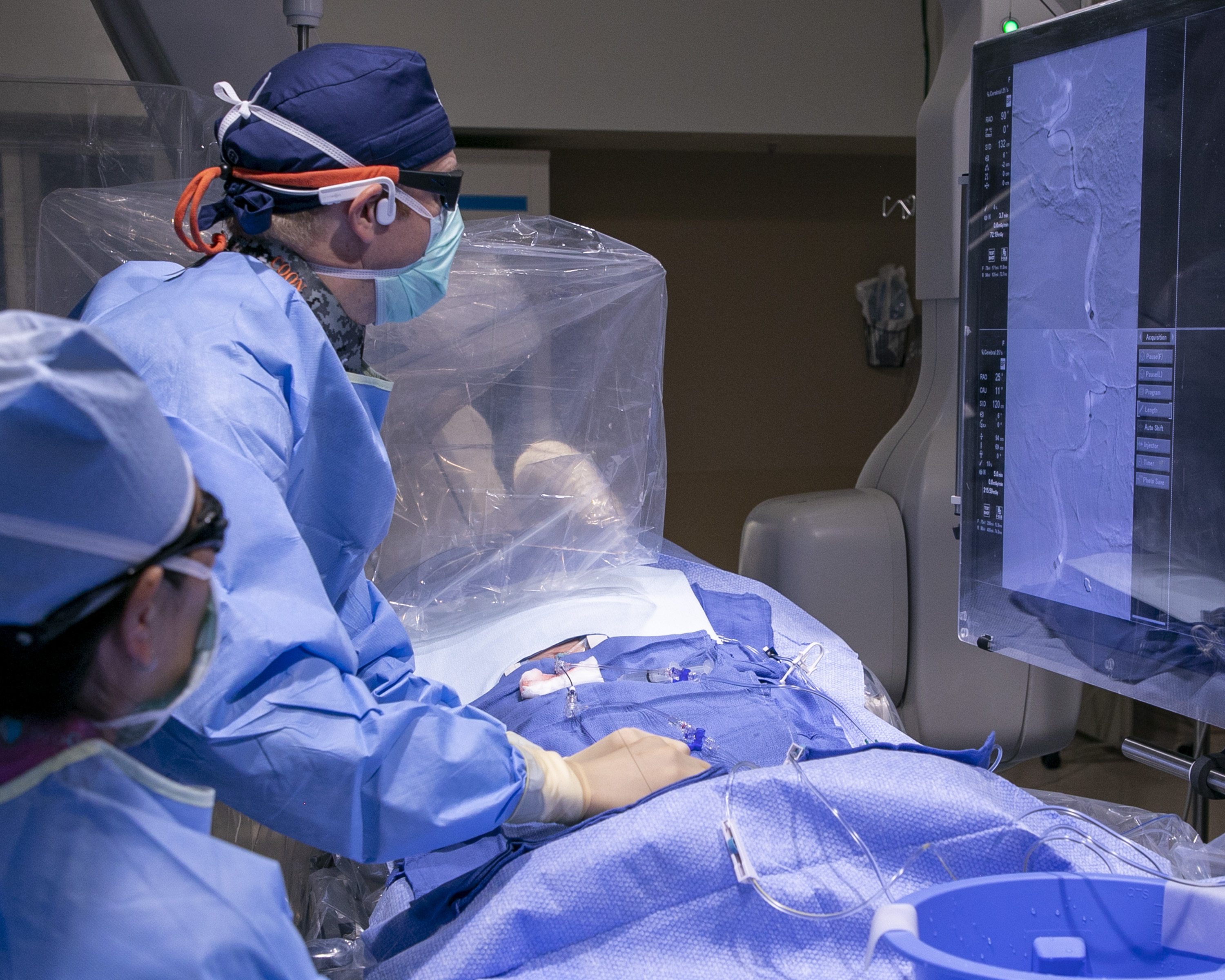Physicians at Carondelet St. Joseph’s Hospital have completed the first-in-human placement of an investigational flow diverting stent that may eliminate the need for open brain surgery to treat distal unruptured, wide-necked intracranial aneurysms.
Brain aneurysms – a bulging or ballooning blood vessel in the brain – can leak or rupture if left untreated, causing hemorrhagic stroke. The investigational device was guided through an artery in the leg, up to the aneurysm, during a minimally invasive procedure at the Carondelet Neurological Institute.
READ ALSO: Ranking Arizona: Top 10 hospitals for 2021
Carondelet St. Joseph’s Hospital Neurosurgeon Dr. Alexander Coon performed the first procedure in Arizona and in the world as part of a worldwide study to evaluate the safety and effectiveness of the “mini” Surpass™ Evolve Flow Diverter System. Carondelet St. Joseph’s Hospital is the only Southern Arizona hospital participating in the study as part of the EVOLVE Investigational Device Exemption (IDE) clinical trial.
“There have been about five flow diverting stents approved by the FDA in the past 20 years, and most of them were first tested and proven overseas before coming to the United States,” said Dr. Coon. “I am delighted that we performed a first-in-human implantation of this flow diverter for treating distal brain aneurysms as part of the ongoing EVOLVE IDE trial.”
The tiny device is designed specifically for the treatment of aneurysms in small, distal vessels according to Dr. Coon, who is Carondelet’s Director of Endovascular and Cerebrovascular Neurosurgery. Once the device is implanted, it is intended to divert flow away from the aneurysm, reconstruct the vessel, and reduce the risk of hemorrhagic stroke from occurring in patients diagnosed as high risk. Hemorrhagic strokes account for 10 to 15 percent of all strokes and carry high death rates, according to the National Institutes of Health.
With open surgery, there can be a higher risk for infections and complications along with a longer recovery time. Dr. Coon and other investigators in the trial are determining whether this investigational device contributes to a quicker and less complicated procedure with reduced recovery time for the patient.
“The Carondelet Neurological Institute is taking another step to the forefront of the cerebrovascular world as we use this next-generation device being studied to treat an anterior communicating artery aneurysm that would traditionally require open surgery. It is the first time this device was implanted in a human being. It is also the first time a device of its kind is being studied first in the U.S. in recent memory,” explained Dr. Coon.
“Our intent is to not only provide the highest level of care to the patients we serve in Tucson, but to also demonstrate leadership and share the learnings from our experience all over the world,” added Dr. Coon.
The Carondelet Neurological Institute opened in 2009 as the first of its kind in Southern Arizona. Focused on clinical excellence, innovation, research, education and outstanding patient experience, it is a nationally recognized destination for neurological care.
“The Carondelet Neurological Institute at St. Joseph’s Hospital is composed of an elite team of specialists working together to provide care for complex neurological disorders and injuries. We are honored to serve Southern Arizona and gratified to be part of groundbreaking research in neurological care,” said Carondelet Health Network Chief Executive Officer Monica Vargas-Mahar.
Carondelet St. Joseph’s Hospital is an award-winning stroke center and neuroscience is a significant focus for the hospital.
“Through the years, our Carondelet Neurological Institute has committed to clinical excellence, innovation, research, education and outstanding patient care,” said Carondelet St. Joseph’s Hospital Chief Operating Officer Ryan Harper. “We are proud of the entire Neurological Institute for bringing new, lifesaving technology to our community.”
“Carondelet St. Joseph’s Hospital and Neurological institute’s high level of expertise and care is available to all in Arizona,” Dr. Coon added. “Our participation in the EVOLVE Trial is indicative of our leadership and dedication to bringing advanced and next-level care to the state of Arizona.”
For more information on the Carondelet Neurological Institute, click here.




